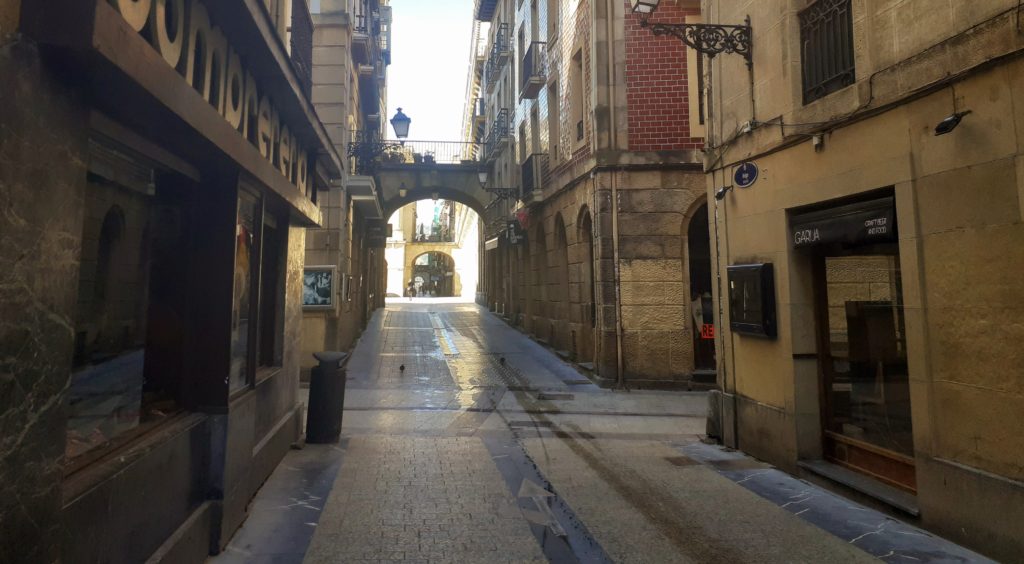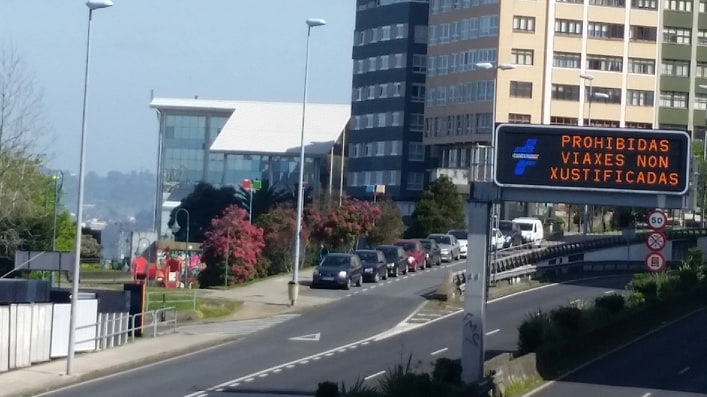Holy shit, why are we all freaking out about CoVid-19? We’ve known about it since it was announced as running rampant across the Hubei Province in China, but hey, we are an apathetic lot, if it’s not immediately affecting us personally, we continue to go about our daily lives.
Me, like many others, didn’t take it all that seriously. We survived Ebola, SARS, Swine Flu and Chicken Flu this was just another one of those viruses that would surely run its course eventually and we’d all get on with doing whatever we were doing right? How very wrong was that ignorant thinking. CoVid-19 was coming to a place near you faster than many of us imagined.

Even living in Spain after the CoVid-19 had bought Italy to a standstill, there was some concern but no real panic, certainly not to the degree of the crazy toilet paper wars in Australia which we all sat back and observed with mild amusement.
The Spanish Government came under some criticism because of its slow response to the growing number of CoVid-19 cases here. Even New Zealand had imposed the toughest border restrictions to stem the outbreak at a time when there were only a few cases there and over a thousand here.
Pretty sure that a majority of people, myself included weren’t prepared for the eventuality. But after cases here doubled in a 24-hour period the Spanish President announced a nation-wide State of Alarm.

What the hell is a State of Alarm and what does it mean in reality? A State of Alarm is the lowest of three State of Emergency actions that the Spanish Government can undertake in cases of serious risk, health crises or situations of the shortage of basic necessities.
This dictates that citizens and vehicles are only allowed to travel on public roads and streets for the purpose of returning to their usual place of residence, to buy food, essential items and pharmaceuticals, to attend health or medical centres, and to go to work, if required to get there.
Transport services still run but only with the provision of 30-odd percent capacity to enable social distancing.
Everything else shuts down, schools, all non-necessary businesses, attractions, cafes, restaurants, cinemas, theatres and public places such as libraries and swimming pools. Closed. Festivals and public events are suspended, funerals and church services for now can still happen, but not with large crowds and attendees need to keep a distance of at least one metre between themselves and others.
This is not just a ‘leave it up to residents to do the right thing’ approach. Yes, residents are doing the right thing but regular Police patrols to ensure that anyone on the street is there for justified reasons; to buy food, visit the Doctor, pharmacy, or go to work if you are in an in a job that requires any of these essential services.

Once this decision was made the response was immediate, no arguments. I was in San Sebastián when it happened, heading up Monte Igueldo on the funicular at the time. We were told by staff that the attraction was closing within the hour. Walking down the hill and back through the old town, I watched as bars and cafes systematically shut. There were little to no people on the street.
Bear in mind, this happened on the weekend, and I was in a town famous for its pintxos, where you take a wine and a tapas at one bar/café before moving on to the next. On a Saturday night these places would normally be packed with people and likely be well stocked with food for the night ahead and probably the next day or two.
Not only will the imposed closure of these venues have a lasting impact financially, but even the immediate closure would have meant they had food inventory on hand that possibly went to waste.

Can you even imagine what this must be like for a population and culture based on social gatherings, taking coffee, meals or wine with friends? Folks here get together to catch up, they have large family gatherings regularly, it’s not unusual at 10-11 o’clock at night for people to be out socialising, jogging or walking their dogs.
My very first day landing in Madrid nearly two years ago I was charmed by the sense of community here, I think the first photo I took was of four old men sitting on a bench in the park having a smoke and a natter. We don’t see that so much back home.
The reality of this pandemic finally sunk in. I’m not concerned that I may or may not get the virus, nor am I concerned that if I do it will be fatal for me. No, the realisation for me was that this scenario will not just be played out over a two-week period but will probably be a much longer issue, so with that in mind I decided it was time to head home.
That my readers is when you realise apathy, ignorance and even arrogance will bite you on the arse. I’ve tried and failed at getting out of Europe because I was a little too late in coming to that decision and the stress of trying leave became too much but that is for another post.
